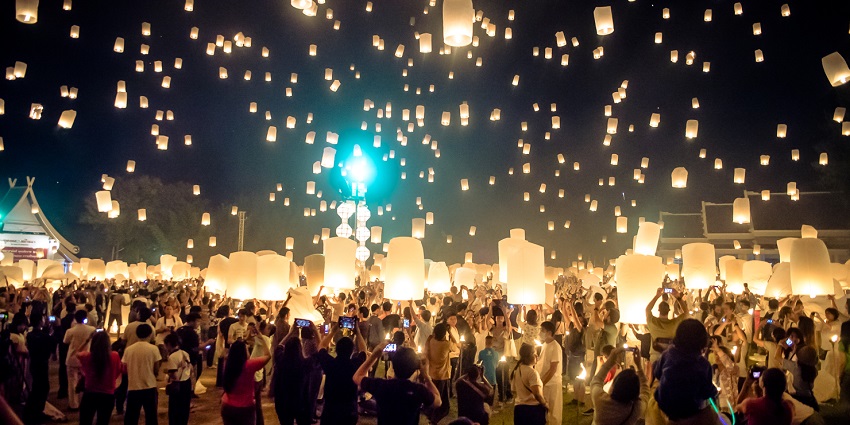Introduction
Current technology development and global business growth do not eliminate the impact of our ancient cultural routines. The customs formed long ago affect medical care, food choices, religious practices, teaching methods, and how technology develops today. The number of customs has grown and stayed the same at the same time linking our contemporary way of life to ancient beginnings.
This article examines 10 historic customs that remain important today and shows their value through a countdown system.
10. Herbal Medicine and Natural Remedies
Before pharmaceutical medicine was developed ancient civilizations treated illnesses through plant-based medical treatments.
Table of Contents
How It’s Still Relevant Today:
- Humans have sustained many medical traditions for centuries since they first developed Chinese medicine and Ayurveda alongside Native American practices.
- Most modern medicines get their medical compounds from naturally occurring plants and they come from the willow bark which creates aspirin and the poppy plant from which people extract morphine.
- A large number of people today adopt natural wellness methods such as essential oils and plant medicine.
Example: Researchers now accept worldwide that the Indian remedy turmeric from Ayurveda shows anti-inflammatory and antioxidant benefits.

9. Meditation and Mindfulness
People have practiced meditation in Buddhist Hindu and Taoist traditions for many long centuries.
How It’s Still Relevant Today:
- Scientific exams confirm turmeric shows stress reduction, helps people focus better, and generates positive emotions.
- Many people use the apps Headspace and Calm to learn and practice meditation today.
- Professional teams now use mindfulness training across different work settings including therapy sessions and corporate offices to improve their efficiency and wellbeing.
Example: Public leaders and executives such as Steve Jobs used meditation to develop their creative thinking skills and concentrate better.
8. Yoga and Physical Wellness
Yoga comes from ancient India and includes body position practices along with breathing control and contemplative techniques.
How It’s Still Relevant Today:
- Millions of people worldwide practice yoga for flexibility, strength, and mental balance.
- Reducing back pain comes alongside managing anxiety and treating chronic diseases using yoga therapy methods.
- Different fitness programs now offer yoga with their classes as hot yoga, power yoga, and aerial yoga.
Example: Organizations at schools and workplaces add yoga sessions to the program as a way to help employees feel better and reduce daily stress.

7. Storytelling and Oral Traditions
Before books people taught each other through spoken memories along with legend and popular stories.
How It’s Still Relevant Today:
- Our society maintains the artwork of storytelling by presenting podcasts as well as hosting TED Talks and spoken-word events.
- Indigenous communities still preserve their history through oral traditions.
- Lots of movies coming from Hollywood studios derive their stories from ancient mythic material.
Example: Old myth structures existed before Star Wars and Harry Potter movies adopted them.

6. Fermented Foods and Probiotics
People now know fermentation as a historic food preservation method that delivers health advantages.
How It’s Still Relevant Today:
- Foods such as kimchi, yogurt, kombucha, and sauerkraut enhance gut health when cooked through fermentation techniques.
- Fermented food contains probiotics that develop both the digestive system and immune system.
- The return of traditional cooking traditions belongs to current wellness trends.
Example: Miso soup from Japan yasso from India and sourdough bread from Europe remain popular since they first appeared as food long ago but also now improve health.

5. Traditional Architecture and Sustainable Building
People from past societies constructed homes that kept a balanced temperature through their selection of local materials and designing techniques.
How It’s Still Relevant Today:
- Leading architects today accept and apply sustainable building principles that came from old construction methods.
- People look to mud houses stone walls and thatch as environment-friendly building materials in place of construction industry products.
- Concepts like feng shui and vastu shastra influence modern interior design.
Example: In the American Southwest and Persian regions, open houses and wind towers keep homes cool with natural methods instead of air conditioning.

4. Agricultural Practices and Organic Farming
Before industrial farming existed ancient farmers used basic techniques to take care of their land including regular changes of crop types and adding composted material.
How It’s Still Relevant Today:
- Organic farmers today use the same basic techniques natural farming communities practiced in ancient societies.
- The agricultural techniques of permaculture alongside companion planting replicate original agricultural practices from the past.
- Modern agricultural methods that are sustainable play an essential role in climate change effects.
Example: The Incas and Southeast Asian people use their traditional land terrace practices to fight soil loss from today.

3. Astrology and Celestial Navigation
Prehistoric people used stars to locate their route and learn about human emotions.
How It’s Still Relevant Today:
- Today’s astronomers continue to refer to star maps that were made in ancient eras.
- Many individuals let their lives be shaped by astrology because this cosmic science persists in popularity through zodiac readings along with horoscopes and birth chart interpretations.
- People today use space exploration and GPS to study navigation methods that were developed by ancient astronomers.
Example: Modern Polynesian sailors travel Pacific waters by following star patterns and ocean movement just like their ancestors.

2. Festivals and Cultural Celebrations
For thousands of years religion and culture birthed festivals to help communities protect their traditions and stay bonded.
How It’s Still Relevant Today:
- Different celebrations such as Christmas along with Diwali, Ramadan, Chinese New Year, and Hanukkah originate from ancient religious rituals.
- Different generations learn historical practices of music songs dance and art through their families.
- Public gatherings in our digital world help people remain connected to their heritage and find their group identity.
Example: Holi Festival has reached global popularity by inspiring other cultures to organize their variations including the Indian Festival of Colors.

1. Democracy and Political Systems
The origin of democracy reached back to ancient Greece when citizens exercised authority to make decisions.
How It’s Still Relevant Today:
- Modern democratic governments use the basic systems that Athens created during their early years.
- Modern voting systems and public debates together with political meetings originated directly from ancient democratic traditions.
- Ideas like justice, citizenship, and human rights trace their origins to early civilizations.
Example: At its foundation, the U.S. Constitution combined Athenian democratic principles with Roman republican ideals when it was created.

Conclusion
Old ways of thinking still influence society today and give our present life direction. Whether through medicine, storytelling, food, architecture, or governance, these time-honored practices remain deeply woven into the fabric of our daily lives.
As we embrace technology and innovation, we should also cherish and preserve these traditions, ensuring that the wisdom of our ancestors continues to guide future generations.
Top 10 Lists of the people, things, places, most expensive, animals, most popular, luxury and high rankings of world. World's Top Insider focuses on the top ten lists of best, greatest and top rankings in the world.


